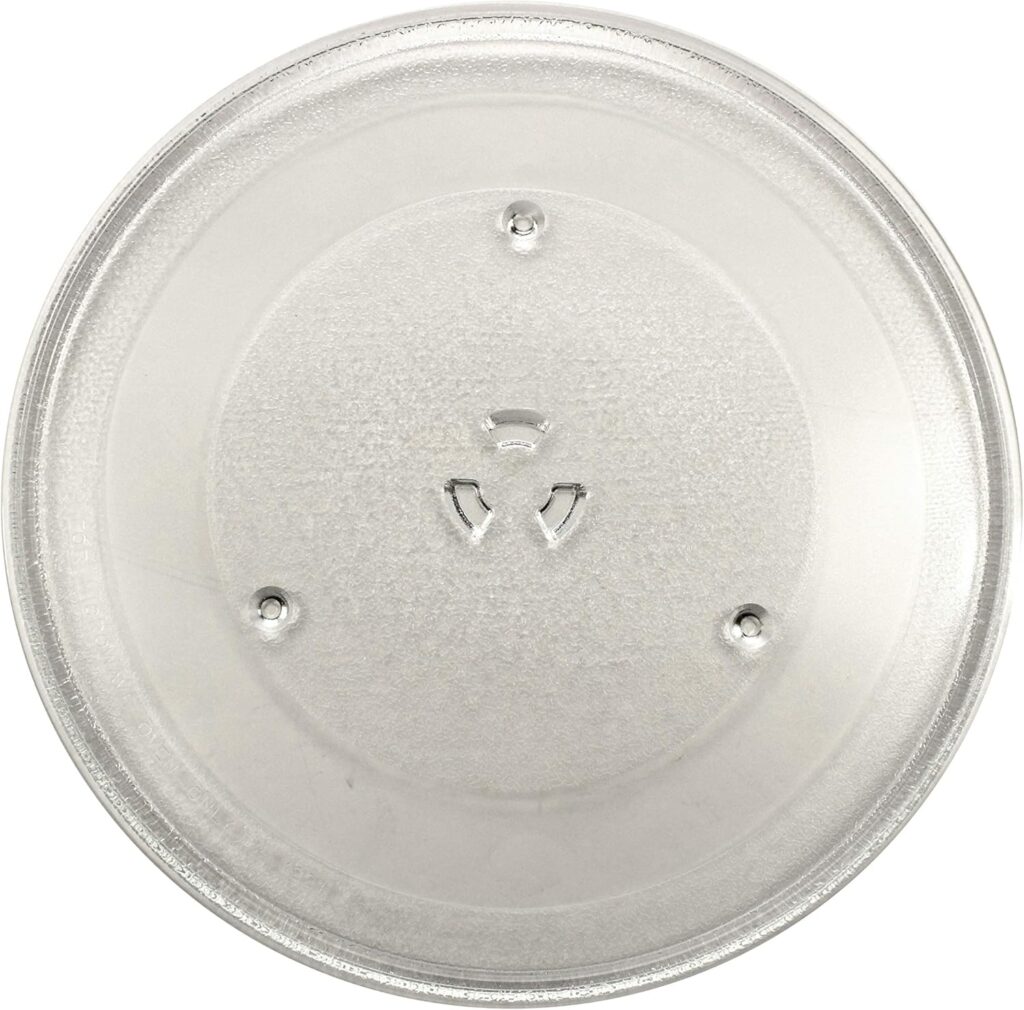Have you ever wondered why your microwave has a rotating glass plate? This seemingly simple component plays a crucial role in ensuring even cooking and preventing cold spots in your food.
Let’s delve into the world of microwave turntables and understand their importance in your kitchen.
The Science Behind Microwave Turntables
Microwaves work by emitting electromagnetic waves that cause water molecules in food to vibrate.
This vibration generates heat, cooking the food. However, if the food is not evenly distributed in the microwave, some areas may receive more heat than others, leading to uneven cooking.
This is where the turntable comes into play.
As the turntable rotates, it ensures that all parts of your food are exposed to the microwave energy for an equal amount of time.
This helps to prevent cold spots and ensures that your food is cooked evenly throughout.

The Importance of a Well-Functioning Turntable
A properly functioning turntable is essential for optimal microwave performance. Here are some of the key benefits:
- Even Cooking: A turntable ensures that your food is cooked evenly, preventing cold spots and burnt edges.
- Improved Flavor: Evenly cooked food is more likely to retain its flavor and texture.
- Prevents Sticking: By rotating, the turntable helps to prevent food from sticking to the microwave walls, making cleaning up easier.
- Longer Appliance Lifespan: A well-maintained turntable can help to extend the lifespan of your microwave oven.
- Safer Cooking: A malfunctioning turntable can lead to uneven cooking, which can increase the risk of foodborne illness.
Troubleshooting Microwave Turntable Issues
If your microwave turntable is not working properly, you may notice uneven cooking or food sticking to the walls.
Here are some common issues and solutions:
Turntable is Stuck: If the turntable is stuck, try gently turning it by hand. If it’s still stuck, you may need to consult your microwave’s manual or contact a technician.
Turntable is Damaged: If the turntable is cracked or broken, it will need to be replaced.
Motor is Faulty: If the motor that drives the turntable is faulty, your microwave may need to be repaired.
Replacing a Microwave Turntable
If your turntable needs to be replaced, you can usually purchase a replacement from the manufacturer or a third-party retailer.
Be sure to choose a turntable that is compatible with your specific microwave model.

Additional Tips for Microwave Turntable Care
- Clean Regularly: To prevent food buildup and ensure smooth operation, clean your turntable regularly with mild soap and water.
- Check for Damage: Inspect your turntable for any cracks or chips. If you find damage, replace it immediately.
- Avoid Overloading: Overloading your microwave can put extra strain on the turntable and motor.
- Use a Turntable Cover: A turntable cover can help to protect your turntable from dust and scratches.
Conclusion
The microwave turntable is an often overlooked but essential component of your microwave oven. By understanding its importance and taking proper care of it, you can ensure that your microwave continues to function efficiently and effectively.
So, the next time you’re enjoying a perfectly cooked meal in your microwave, take a moment to appreciate the unsung hero that is your turntable.